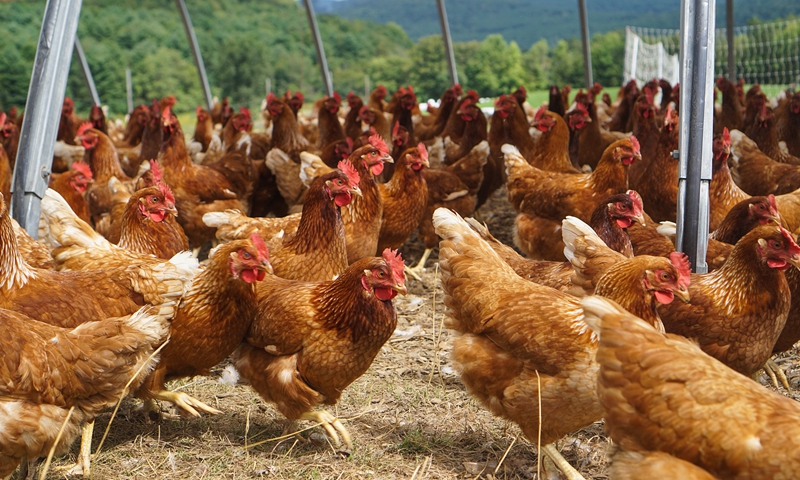
Photo:VCG
China's top legislature during its latest meeting reviewed and passed the amended Animal Epidemic Prevention Law, which bans slaughtering of livestock in markets in certain areas and emphasizes management of pet animals and stray animals.
After the meeting on Friday of the Standing Committee of the 13th National People's Congress, lawmakers explained the revision to the public.
Due to active people flow, epidemic control management and requirements for agricultural fairs and wet markets, were different from centralized farms and slaughter houses.
People coming to such fairs and markets do not go through disinfection procedures or wear protective equipment. Meanwhile, some sellers slaughter livestock at the fairs and markets, creating higher risks of spreading zoonosis, said Yang Heqing, deputy director of the Legislative Affairs Commission's economic law office.
With public appeals for reducing trading of live animals in populous areas, the amendment stipulated that county-level governments and above should designate areas in cities where trade of live animals is prohibited based on local situations, Yang said.
The amended law also ordered local governments to formulate regulations and rules to better handle pets and stray animals. The law did not have a consistent policy because situations vary greatly across China in cities and villages, Yang said.
There are 137 local regulations on pet-raising. Yang noted the work needs to be done via governments, local residents and people's organizations.
The revised law also emphasized inspection and quarantine of wild animals that were captured for purposes other than meat, such as scientific research, drug development and exhibition.
Wildlife protection authorities are required to detect and handle wild animals that were suspected of getting infectious diseases, according to the law.
The law also highlights the prevention of infectious diseases jumping from animals to humans, clarifying responsibilities of different organs and specifying on punishment for misconducts.
The new law also added a separate part on proper handling and harmless disposal of dead animals, with specific rules on responsibilities, procedures and organizations to carry out the job. It also stipulated local financial budgets should pay for harmless disposal.
China's livestock and poultry industry is large but is decentralized, making epidemic prevention work more difficult. County-level governments should allocate budgets for animal epidemic prevention and build up a basic-level control team, including veterinarians, to deal with the work.
The new law will take effect on May 1.




